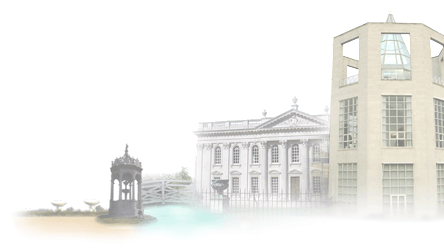A Cambridge perspective
on the digital world



February 2003
Text messaging is more often associated with teenage flirting than with serious
decisions. But the debate transmitted by Granada TV on 12th February 2003,
on whether Great Britain should go to war with Iraq, was deadly serious.
There is no more important issue facing the people of Great Britain at the present time; yet the debate has so far been conducted by politicians at the highest level, while people - and even, some would say, ordinary Members of Parliament - can only look on and watch, and worry.
Granada's programme brought the debate to the people. The BBC programme on the same subject transmitted earlier the same evening focussed on politicians and experts in the studio - and one or two by satellite link - talking among themselves.
But Granada's intention was to truly involve people - including those watching at home - at every stage. The medium that enabled this was text. Using the intxt™ interactive text system designed by ourselves and our sister company mTank, viewers at home were able to text both a YES/NO vote and detailed comments, directly to the studio. Within seconds, text messages received could be selected for broadcast on screen, or passed to the presenter Lucy Meacock for use in the debate itself. Several times, text messages received changed the course of the debate.
Some 2,500 text messages were received. Astonishingly, of those who took the trouble to text during the programme, some 90% went beyond sending a simple Yes/No to text detailed thoughts, feelings, views and opinions. Many were clearly from the heart, and based on personal experience.
Viewers were clearly comfortable with text messaging as a way of expressing both personal and political views. The comments received were much more uninhibited than is usual with other forms of communication. Many were moving and deeply felt, and showed that people are able to express both passionate views and rational arguments, clearly and forcefully, sometimes with humour and even poetry, within the 160 character limit of a text message. Comments were direct and to the point - even rude - and many expressed a complex mix of emotions:
"Listen to ur nation Mr Blair they r the people that count not the US"
"NO WAR!! Blaire needs 2 get his head out of Bushes bakside & sort his own country out b4 running 2 the clicking fingers of Bush"
"I dont want them to. But we always seem to back down"
"Too right! bring the noise saddam! "
"hi gdnite i think this war wot is goin 2 happen is silly and i think they should try 2 co-operate and act like adults from xxxxxx aged 14 from Rochdale"
"YES! Im only 19 years old & want to have a peacefull future when im older- & i know that this is the only way to bring peace. Thanks"
"Iraq just a cover up to hide incompetence over bin laden when will they learn we are not stupid no war please ive got family in army"
(Surnames and other personal details removed where supplied.)
Text is a medium that millions of people now use for their most intimate conversations, and their most unguarded thoughts and feelings. Clearly they were willing to extend this intimacy to a television debate, giving perhaps the clearest insight yet into what people really think and feel, behind the public facade. The intxt™ system allowed thousands to participate directly, creating a shared televisual experience that has not been possible before.
The result of the text poll was also much closer than other polls, taken by conventional means, have suggested. A standard telephone poll ('ring different numbers for Yes or No') conducted at the same time revealed 80% against a war. The text vote was much closer, and more volatile.
The intxt™ system was able to analyse differences in the voting pattern as the programme progressed. Starting out at 60.5% against, the result swung towards 50/50 as the debate progressed, at one point even showing a narrow majority of 53.1% in favour of the war, before swinging back to 54.4% against overall.
A clear implication is that younger voters - who are more likely to use text - are much more closely split on this issue than older age groups, and are also likely to be swayed by arguments once they enter the debate.
Text plus television enabled a real debate on the issues affecting ordinary people, a debate that has not taken place up to now. No punches were pulled in the text interaction.
We think Granada's pioneering work will lead to many more debates like this in future. This is compelling television, as well as a new way for ordinary men and women to find a voice in the public debate.
Interactive text restores the spirit of the political meeting that existed several decades ago, when ordinary people were directly involved and interested in politics and current affairs. It does so in a thoroughly modern way, through TV and the mobile phone, without requiring you to give up an evening and crowd into draughty meeting halls.
Perhaps, in time, this kind of debate could even restore public interest in politics, now that most people have come to see it purely as a spectator sport.
©2003 Mediation Technology
